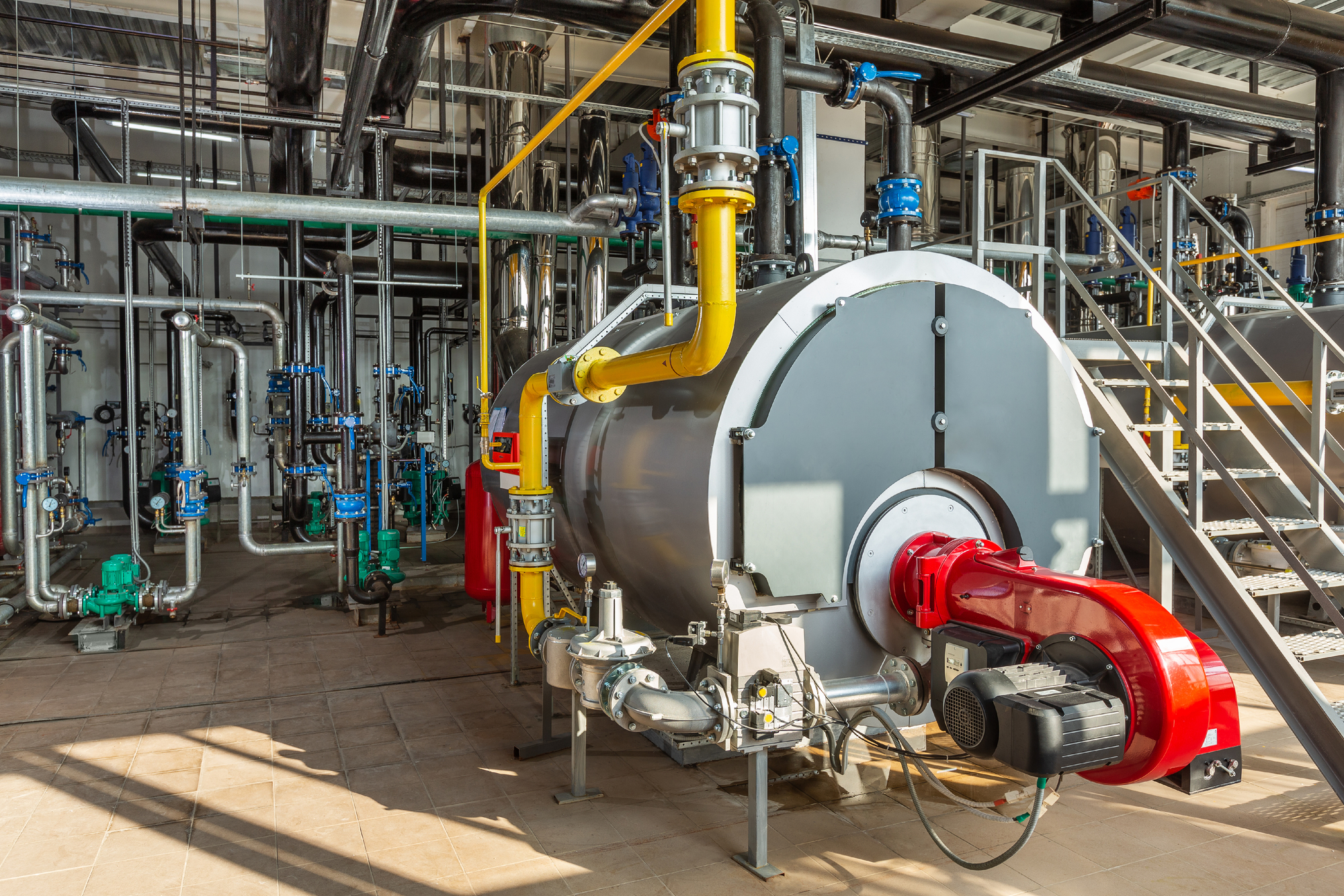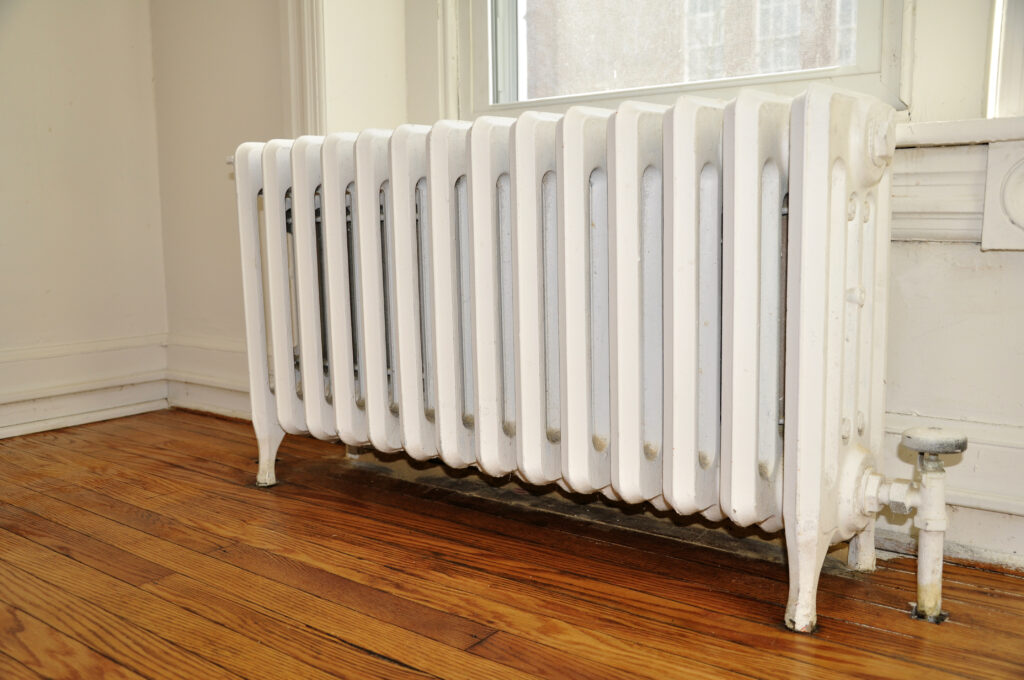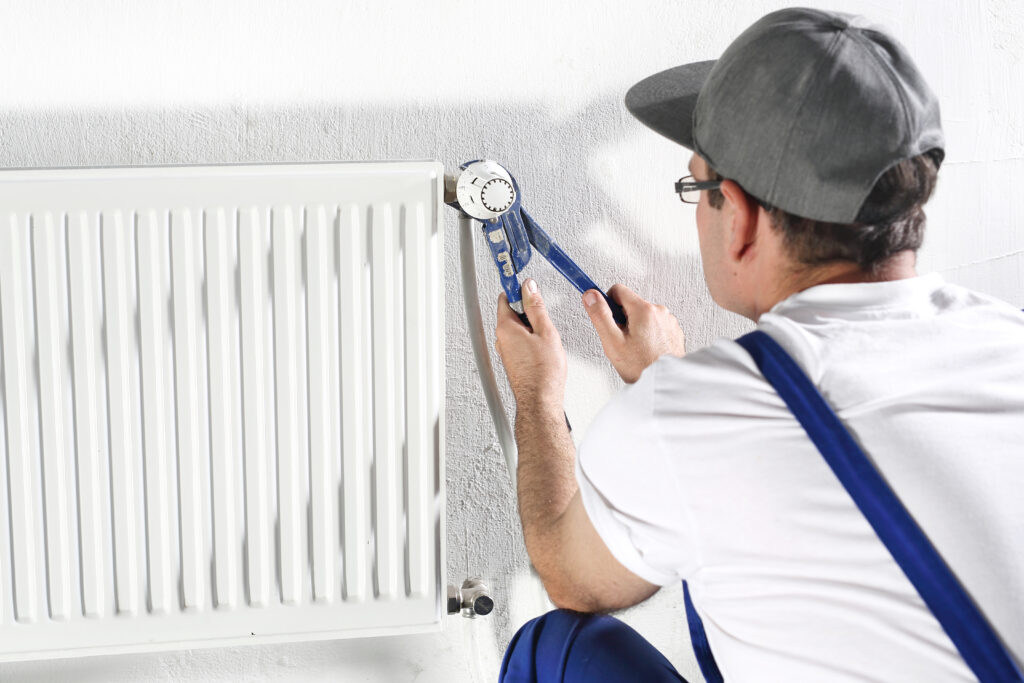Unveiling the Pros and Cons of Steam vs. Hot Water Heating

As we step into older buildings with their vintage charm, we often encounter traditional heating systems – steam and hot water boilers. These time-tested methods have provided warmth and comfort to occupants for generations, each with its own set of advantages and drawbacks. In this blog, we will uncover the pros and cons of steam and hot water heating systems, generally found in older structures. From their efficient distribution of warmth to the maintenance challenges they present, we delve into the intricacies of these heating systems, shedding light on the considerations that property owners and occupants must grapple with in preserving comfort and ensuring their control is up to par.

Pros of Steam Systems
1. Efficient Heat Transfer
Steam has a higher heat-carrying capacity than hot water, allowing for efficient heat transfer throughout the building. This can result in faster and more effective heating, particularly in large spaces or buildings with multiple floors.
2. Faster Response Time
Steam systems heat up quickly, allowing for rapid response to changes in demand. When there is a sudden increase in heating requirements, steam can be supplied almost instantly, reducing the time needed to reach the desired temperature.
3. Reliability and Longevity
Steam heating systems have a proven track record of reliability, with many boilers adequately heating buildings for decades. When properly maintained, steam boilers have a long lifespan, reducing repair costs for building owners.
Cons of Steam Systems
1. Safety Concerns
Steam systems operate at higher pressures than hot water systems, posing potential safety risks. High-pressure steam can cause severe burns if proper precautions are not taken. Additionally, steam leaks can result in hazardous conditions, and the release of steam into the environment can lead to scalding or other accidents.
2. Noisy Operation
These systems can be quite noisy, as the steam flowing through the pipes can create a loud hissing sound. This can be particularly problematic in residential buildings, where tenants may find the noise disruptive.
3. Uneven Heating
Steam systems can sometimes result in uneven heating throughout a building, as the steam may not distribute evenly through the pipes. This can lead to areas of the building that are too hot or too cold.
Pros of Hot Water Systems
1. Energy Efficiency
Hot water heating systems tend to be more efficient than steam systems. This is because hot water retains heat longer and transfers it more effectively than steam. As a result, these systems require less energy to maintain a consistent temperature, leading to lower energy consumption and reduced operating costs.
2. Temperature control
Hydronic systems offer better temperature control. With hot water, it is easier to achieve and maintain a specific temperature range throughout the building. Steam systems, on the other hand, often produce varying temperatures due to fluctuations in pressure and distribution, making it more challenging to achieve precise control.
3. Safety
Hot water systems are generally considered safer than steam systems. They operate at lower pressures than steam, reducing the risk of explosions or other pressure-related accidents. Additionally, they do not carry the same level of burn hazards as steam, which can cause severe injuries if not handled properly.

4. Maintenance
Hot water heating systems tend to have simpler designs and require less maintenance compared to steam systems. Steam systems involve complex components such as steam traps, pressure regulators, and condensate return lines, which can be more prone to malfunctions and require regular inspection and upkeep. Hot water systems, with fewer moving parts, are typically easier to maintain and troubleshoot.
5. Noise reduction
Hot water heating systems generally operate more quietly than steam systems. Steam moving through pipes can create hissing, banging, or other disruptive noises. In contrast, hot water systems produce minimal noise, promoting a quieter and more comfortable environment for building occupants.
Cons of Hot Water Systems
1. Limited Heat Carrying Capacity
Hot water systems have a lower heat carrying capacity compared to steam systems. This means that they may not be suitable for large-scale industrial applications that require high heat loads. Steam systems are better equipped to handle such demanding heating requirements.
2. Slower Heating Response
Hot water systems generally have slower heating response times compared to steam systems. Steam has a higher heat transfer rate, allowing for quicker warming of spaces. In contrast, hot water takes longer to heat up, which can be a disadvantage in situations where rapid heating is necessary.

Controls
Being that these systems operate very differently, it’s important to verify that the control you have is designed to manage your heating system properly. The Entech Stealth is one control that can adapt to all heating system types. Using advanced AI and a network of sensors, it will maximize the benefits of your heating system to provide the most comfortable and energy efficient heat possible. Additionally, EntechPro specialists monitor the boiler, point out inefficiencies and ensure that optimal settings are in place.
Conclusion
In summary, steam and hot water systems each have their pros and cons. Ultimately, understanding the heating system in your building is important for proper maintenance and upkeep of your boiler. You can then ensure that you have a good boiler control that is maximizing the benefits of your system. Contact us to learn how you can start increasing efficiency your heating system today!


